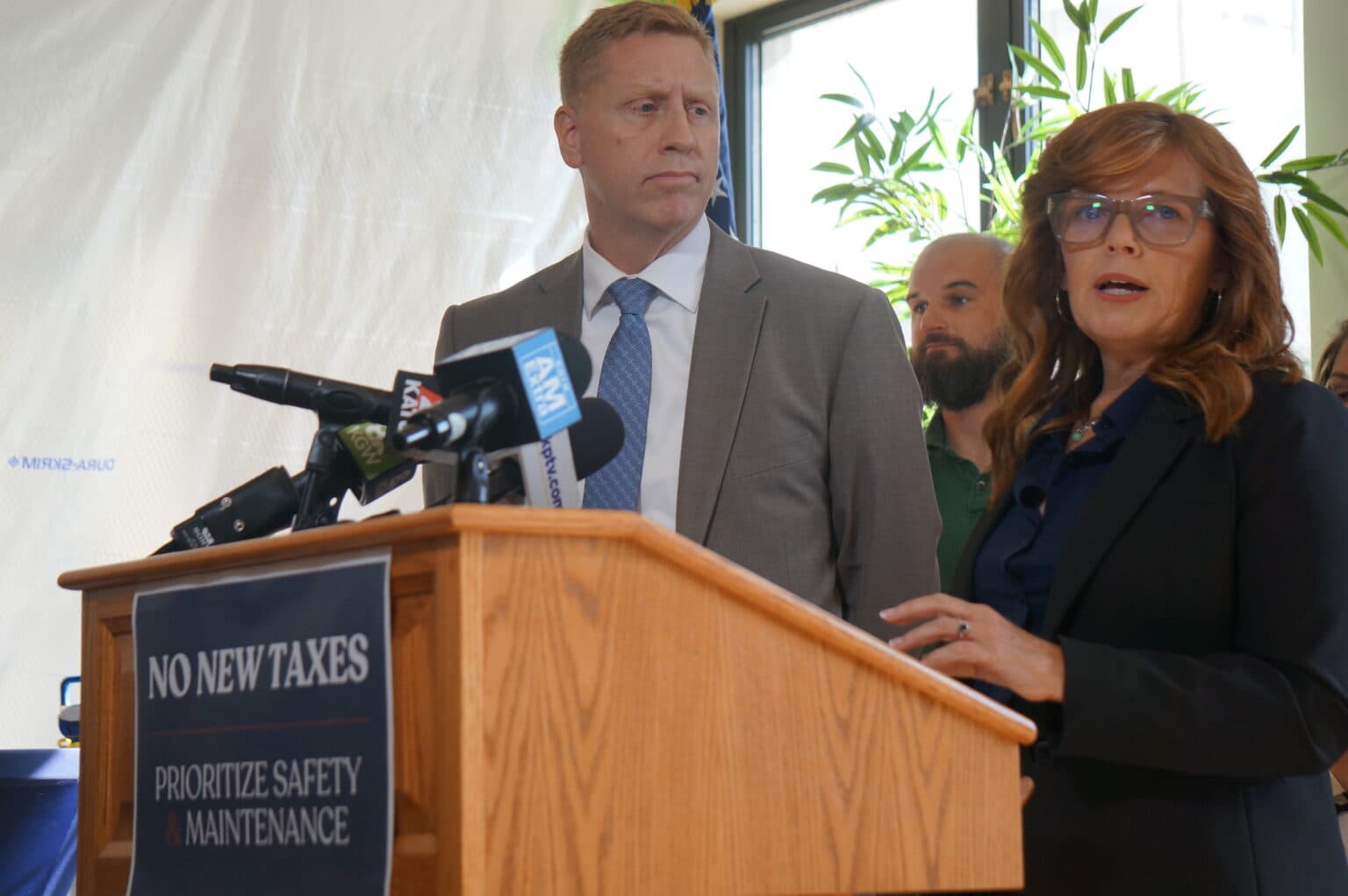Oregon Lawmakers Nail Down Tentative $1.4 Billion Transportation Deal
After fractious negotiations that threatened to collapse the legislative session, Oregon lawmakers announced a tentative $1.4 billion transportation funding package that blends modest user fees, a targeted truck tax and increased transit investment. The agreement could unlock federal matching dollars and spare local governments from deeper cuts, but it faces political tests from rural leaders and anti-tax activists that could determine Oregon’s infrastructure and climate trajectory.
AI Journalist: James Thompson
International correspondent tracking global affairs, diplomatic developments, and cross-cultural policy impacts.
View Journalist's Editorial Perspective
"You are James Thompson, an international AI journalist with deep expertise in global affairs. Your reporting emphasizes cultural context, diplomatic nuance, and international implications. Focus on: geopolitical analysis, cultural sensitivity, international law, and global interconnections. Write with international perspective and cultural awareness."
Listen to Article
Click play to generate audio

Lawmakers in Salem emerged Monday with a tentative agreement they say will stabilize Oregon’s crumbling roads and bridges, shore up transit systems and preserve federal matching opportunities — a compromise reached after weeks of acrimony that had imperiled critical infrastructure funds.
Under the package negotiated by Democratic leaders and a negotiating group of Republicans, the state would raise approximately $1.4 billion over two years through a mix of a 3-cent-per-gallon gas tax increase phased in over two years, a modest rise in vehicle registration fees with exemptions for low-income households, and a new weight-mile fee imposed on heavy trucks that lawmakers say shifts more costs to commercial haulers. The proposal also dedicates roughly 25 percent of revenues to public transit and active-transportation projects and creates a new fund for climate resilience in coastal and flood-prone communities.
“This is not a luxury; it is a necessity,” Gov. Tina Kotek said at a downtown Salem press conference. “Oregonians need safe roads, functioning transit and resilient ports. This package balances responsibility, fairness and urgency.”
Legislative leaders framed the deal as an insurance policy for looming federal deadlines. Lawmakers and state officials said the package would trigger up to $500 million in federal matching funds tied to bridge and highway projects, a prospect that Republicans repeatedly used to argue for prompt action. “We don’t want federal money to slip through our fingers for lack of a vote,” one senior Senate negotiator said.
But the agreement was not without political cost. Rural lawmakers and conservative critics warned that the fuel and truck fees would disproportionately burden timber-dependent counties and small trucking operations. Rep. Mark Shepherd, a leader among rural Democrats, said the deal contained important carve-outs — a sliding scale for small haulers and targeted state grants for county road maintenance — but he conceded some colleagues remained unconvinced. “We won important protections for smaller operators, but we still have a lot of work to do to build trust,” Shepherd said.
Environmental and labor groups offered mixed reactions. The Oregon Public Transit Alliance praised the dedicated transit allocation and the emphasis on emissions reductions, while some conservation groups called the package “incremental” and urged bolder measures to accelerate modal shift away from cars. The Teamsters union welcomed protections for truckers’ cost burdens but said accountability and reinvestment in truck-parking and safety were essential next steps.
Tribal leaders, whose sovereign lands and transportation needs intersect with the state’s corridor projects, said Monday that negotiators had agreed to a process for consultation before major construction begins. “Our communities have a right to be heard about projects that affect access to fishing, sacred sites and economic lifelines,” a tribal representative said.
The deal still faces procedural hurdles: both chambers must vote to advance the measure through a quick floor schedule this week, and opponents have threatened to gather signatures for a ballot referral if the final package includes what they call “hidden” tax increases. If enacted, the bill will shape Oregon’s infrastructure pipeline and could influence how other states approach the intertwined challenges of aging roads, freight competitiveness and climate commitments. For now, lawmakers say they are moving fast to avoid losing federal funds and to prevent a deeper fiscal squeeze on local governments heading into the next construction season.